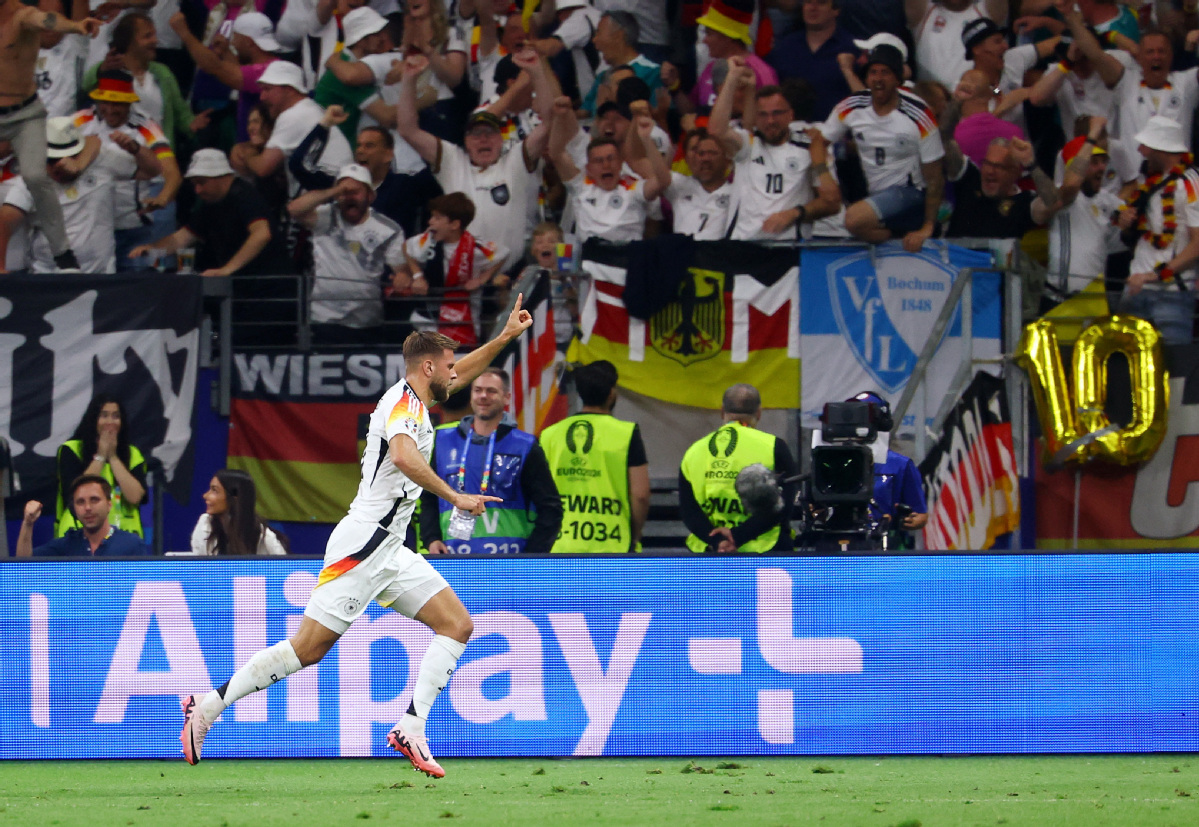Euro 2024 sponsorship deals drive Chinese brands deeper into Europe
Flagship companies widen markets, highlight product innovations, burnish international reputations


Huge exposure
The company is accelerating steps to expand its presence in the United Kingdom and EU countries including France, Italy, Switzerland, Spain and Germany as globalization is one of its core strategies.
As of this month, over 400,000 merchants in Europe accept mobile payments through Alipay+ from 14 international e-wallets and banking apps, according to a news release from the company.
Users of Alipay+ partner wallets can make mobile payments at department stores, supermarkets, convenience stores, airports, duty-free stores, restaurants and tourist attractions by just scanning an Alipay+ QR code.
Alipay+ expects this summer to be busier than usual as sports fans travel from around the world to watch Euro 2024 and the upcoming Paris Olympic Games. The company said it will enable more merchants to benefit from the expected influx of fans, athletes and tourists via its mobile payment technology and digital solutions.
In 2018, Ant Group's digital payment arm Alipay and UEFA announced an eight-year global partnership for all UEFA national team soccer competitions from 2018 to 2026, including Euro 2020, Euro 2024, and the UEFA Nations League finals. Before the partnership, major global sporting event sponsorship had for decades been provided by international bank cards like Mastercard and Visa.
This year's European Championship is expected to draw a global audience of more than 5 billion, according to the marketing director of UEFA.
Other global sponsors of the event include Adidas, Booking.com, Coca-Cola and Qatar Airways.
UEFA estimates Euro 2024 will generate 2.4 billion euros ($2.6 billion) in revenue, mainly from broadcast and sponsorship deals, ticket sales, hospitality, and licensing fees for official tournament merchandise.
The tournament presents an important opportunity for companies to reach new consumers, increase brand exposure, and expand their businesses in overseas markets, industry insiders said.
In the 1980s and 1990s, it was common for Japanese and South Korean companies, such as Sharp and Samsung, to be major sponsors of international sports events, but in recent years they have been absent from top-tier sponsorship.
Chinese brands are now leading the change of sponsors, with their names seen in commercials and on billboards at global sports competitions.
It is the third consecutive UEFA European Championship for which Hisense has been a sponsor. The company is the official screen provider for the video assistant referees during this year's tournament, and it is providing display technology support for the central VAR room in Leipzig, Germany, to help on-field referees make decisions.
"Continued investment in world-class sporting events represents Hisense's determination to become a global brand, and it helps us build stronger relationships with global consumers and accelerates the company's globalization process," said Jia Shaoqian, chairman of Hisense.
In 2016, the company became the first Chinese sponsor of the UEFA soccer championship. It also sponsored the 2018 FIFA World Cup in Russia and the 2022 World Cup in Qatar.


















